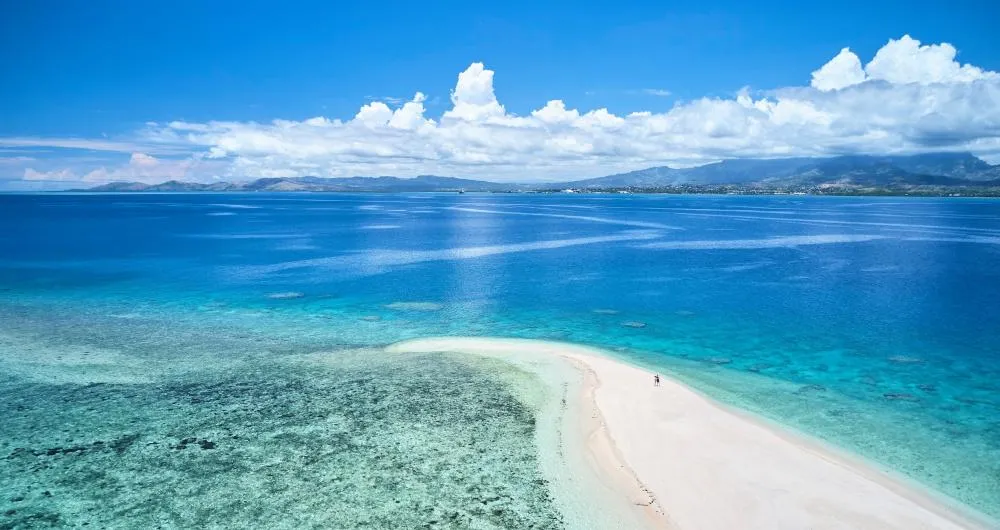Planning Your Fiji Honeymoon on a Budget
Dreaming of a romantic Fiji honeymoon but worried about the cost? It’s absolutely possible to experience the beauty and charm of Fiji without breaking the bank. This guide provides practical tips and strategies for planning an unforgettable Fiji honeymoon on a budget. From choosing the right time to travel to finding affordable accommodations and activities, we’ll cover everything you need to know to make your dream honeymoon a reality. Get ready to explore the pristine beaches, turquoise waters, and vibrant culture of Fiji, all while keeping your spending in check. Planning ahead and being flexible with your choices are key to unlocking a magical, budget-friendly honeymoon experience.
Setting a Realistic Budget
The first step in planning any budget-friendly trip is to establish a realistic budget. Determine how much you can comfortably spend on your Fiji honeymoon. Research average costs for flights, accommodation, food, activities, and transportation. Websites like Skyscanner, Booking.com, and TripAdvisor can provide insights into pricing. Prioritize your spending based on your preferences. Are you more interested in luxurious accommodations or thrilling activities? Allocate your budget accordingly. Remember to include a buffer for unexpected expenses. A well-defined budget will help you make informed decisions throughout the planning process and prevent overspending. Consider using budgeting apps or spreadsheets to track your expenses and stay on course.
Flights and Transportation

Flights can be a significant expense, so finding deals is crucial. Be flexible with your travel dates, as flying during the shoulder season (April-May and September-October) often results in lower fares. Use flight comparison websites like Google Flights or Kayak to compare prices from different airlines. Consider flying into Nadi International Airport (NAN) as it often has more affordable options than the smaller airports. Once in Fiji, transportation costs can vary. Water taxis and domestic flights to outer islands can be expensive. Opt for public buses or local ferries whenever possible. Taxis are available but be sure to agree on a price before you start your journey to avoid overcharging. Consider pre-booking airport transfers for convenience and cost-effectiveness.
Accommodation Options
Accommodation choices significantly impact your budget. Resorts are luxurious but can be expensive. Look for budget-friendly options like guesthouses, hostels, and locally-owned hotels, especially on the outer islands, which often offer a more authentic and affordable experience. Websites like Airbnb can also offer a range of options, from budget-friendly apartments to unique homestays. Consider staying in a combination of accommodations u2013 a few nights at a resort for a treat, followed by stays at more affordable locations. Self-catering can also help reduce food costs; look for accommodations with kitchen facilities. Research locations that offer a balance of affordability and positive reviews. Choosing the right place will help make your trip memorable and relaxing.
Activities and Excursions
Fiji offers a plethora of activities, but some are more budget-friendly than others. Snorkeling and diving are popular and relatively affordable, especially if you bring your own gear. Many islands have easily accessible snorkeling spots. Consider day trips instead of overnight stays on other islands to save on accommodation costs. Look for package deals and discounts on activities. Negotiate prices with local tour operators, especially if you’re booking multiple activities. Embrace free activities such as hiking, swimming in the ocean, and relaxing on the beach. Be aware of activities that seem like good deals but might come with hidden charges. Prioritizing your favorite activities will also help you keep to your budget and maximize your experience.
Choosing the Right Time to Visit Fiji

The timing of your trip can significantly impact your budget. The peak season, from June to August and December to January, is the most expensive due to high demand. Traveling during the shoulder season (April-May and September-October) offers pleasant weather, fewer crowds, and often lower prices on flights and accommodation. The rainy season (November to March) can bring occasional showers, but it also means fewer tourists and potentially lower prices. Assess your tolerance for rain and weigh the trade-offs. Consider the timing of local events and festivals, which can add unique cultural experiences to your trip. Plan your travel dates carefully to align with your budget and preferences for weather and crowds. Consider the prices during the holidays, as they usually are more expensive.
Tips for Saving Money on Food and Drinks
Food and drinks can quickly eat into your budget. Dining at resorts and restaurants geared toward tourists tends to be more expensive. Explore local markets and supermarkets to purchase groceries and snacks. Opt for self-catering if your accommodation has kitchen facilities. Eat at local restaurants (called ‘bure’) or food stalls, where meals are significantly cheaper and offer a taste of authentic Fijian cuisine. Look for happy hour deals at bars and restaurants. Consider drinking local beers and beverages, which are more affordable than imported options. Pack reusable water bottles and refill them to avoid purchasing bottled water. Embrace the opportunity to try local dishes, like Kokoda (marinated fish) or Lovo (earth oven cooking).
Free Activities and Experiences
Fiji offers numerous free activities. Relaxing on the beautiful beaches is a must. Snorkeling and swimming in the crystal-clear waters are often accessible without any cost (bring your gear). Hiking to scenic viewpoints offers stunning vistas. Explore local villages and interact with the friendly Fijian people. Many villages welcome visitors and offer cultural experiences. Attend free cultural performances and events. Enjoy the sunset views over the ocean. Simply soaking in the natural beauty of Fiji can be a wonderful and cost-effective way to enjoy your honeymoon. Research free activities available in your chosen locations.
Embracing Local Culture

Immersing yourself in the local culture not only enriches your experience but can also be budget-friendly. Learn a few basic Fijian phrases u2013 the locals appreciate the effort. Visit local markets to purchase souvenirs and interact with vendors. Participate in a traditional kava ceremony (kava is a traditional drink). Respect local customs and traditions, such as dressing modestly when visiting villages. Engage with the local community by attending cultural events and festivals. Consider staying in a homestay to experience Fijian hospitality. Experiencing the local culture often involves activities that are less expensive than more tourist-focused options. Embrace the warmth and hospitality of the Fijian people, and your honeymoon will become truly memorable. Be mindful of local traditions and avoid activities that can be offensive or disrespectful.
Packing Essentials for a Budget Fiji Honeymoon
Packing strategically can save you money. Pack light to avoid baggage fees. Bring reef-safe sunscreen to protect the environment and avoid buying expensive options in Fiji. Pack a reusable water bottle, a universal adapter, and any necessary medications. Consider bringing snorkeling gear, which you can use repeatedly. Pack comfortable walking shoes for exploring. Bring any special toiletries or personal care items you prefer. A small first-aid kit is always a good idea. Pack a few versatile outfits that can be mixed and matched to reduce the need for a large wardrobe. By packing smart, you can reduce the need to purchase items while traveling, saving money and hassle.
The Importance of Travel Insurance
While not a direct money-saving tip, travel insurance is essential for any trip, including a budget honeymoon. Travel insurance covers unexpected events like medical emergencies, trip cancellations, lost luggage, and theft. Research and compare different insurance providers to find a policy that fits your needs and budget. Make sure the policy covers the activities you plan to do, such as water sports or hiking. Having travel insurance provides peace of mind and can save you significant expenses if something goes wrong during your trip. Read the policy details carefully to understand what is and isn’t covered. The money you spend on insurance is a worthwhile investment to protect your honeymoon from unforeseen circumstances.
